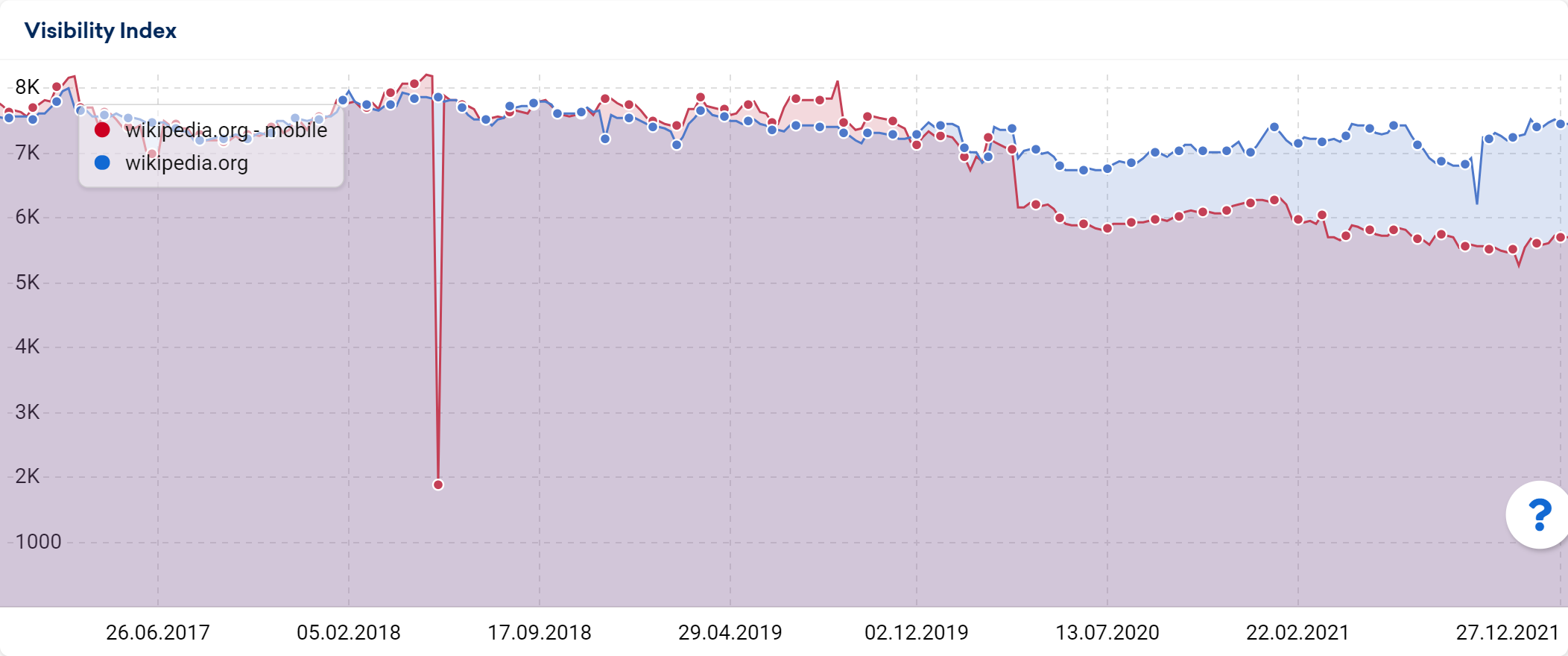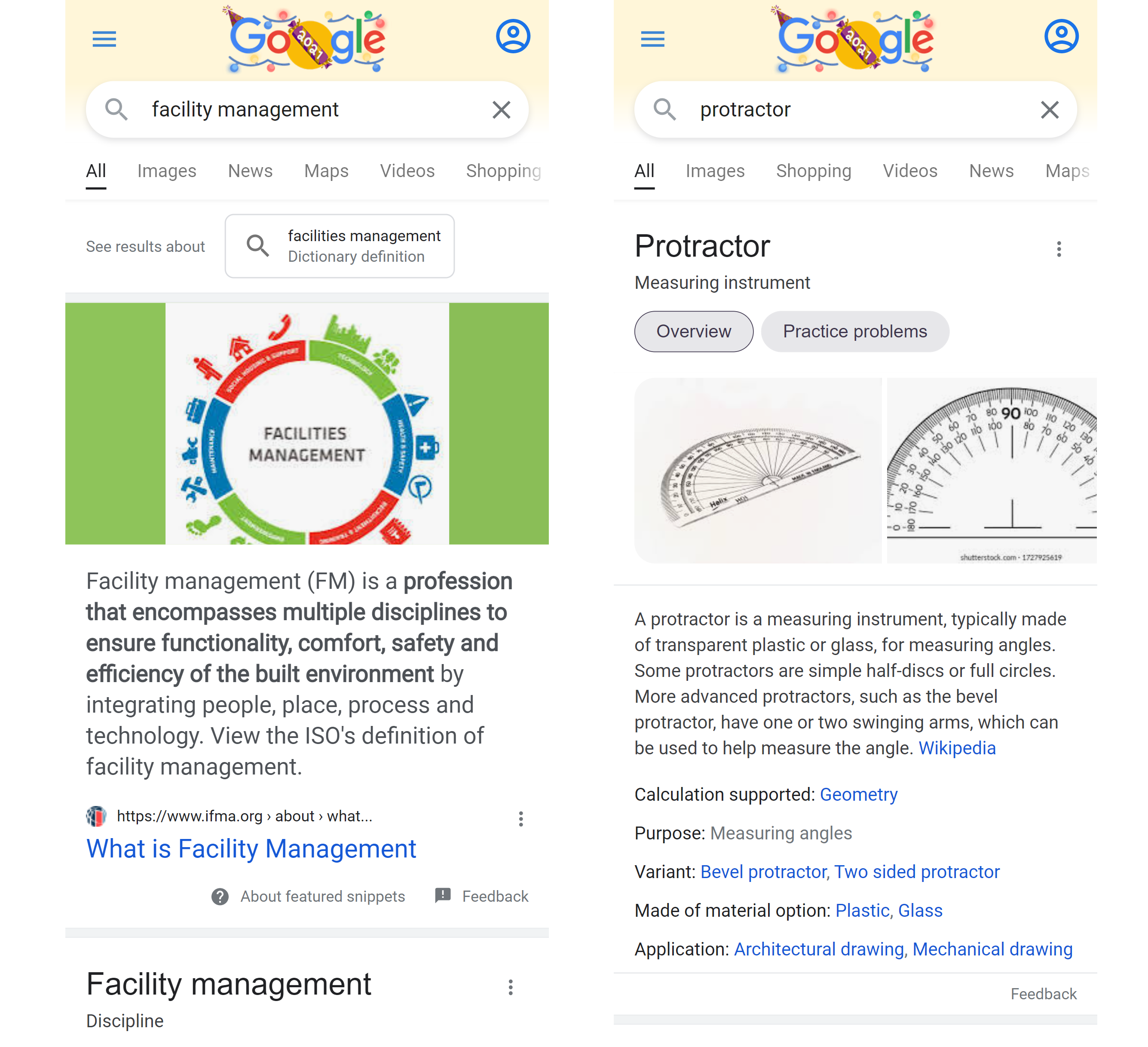2022 is a few hours away and, as with the last year, we are not facing a revolution, but a steady and rapid evolution. In this post: three theses and a set of opinions on current SEO trends.
I’m not a fan of early annual reviews. We’ve seen them since the end of October but the year is only over when the 31st December is on the calendar – and as luck would have it, it is today!
In the first part of this blog post I cover three big topics that will keep us busy for the next year. In the second part, a short assessment of a number of current SEO trends. Have fun!
Google takes more visibility
The search results are owned by Google. These simple words have serious consequences: there is no entitlement to ten organic hits. Google’s mission is to “organise the world’s information and make it universally accessible and useful.”. Organic results were just a means to an end – and Google will increasingly resort to alternative means.
The future can already be seen today on the mobile phone. All the important SERP features of the last few years were first displayed in the mobile SERPs and only later, sometimes with a long delay, also shown in desktop search results. And the future does not bode well, as you can see from the comparison of the desktop with the mobile visibility of Wikipedia.org in UK search:

While the desktop visibility has remained almost constant in recent years, the mobile visibility of Wikipedia.org fell from around 7700 to just 5700 points . The content of Wikipedia is more important than ever for Google. How did it come about? Here are two example SERPs:

On the left a “classic” featured snippet with content from the page and a fairly large and clear attribution 1 of the source. To the right of this is a current version of the Knowledge Panel: almost identical structure but a significantly smaller and less click-intensive attribution 2 of the source (here Wikipedia). The left result is an organic one, the right result belongs to Google.
We will have to live with the fact that Google is increasing the share of knowledge panels and thus keeping users in the Google ecosystem. As a result, “In-SERP SEO” will become more important in the next few years: no longer will the click be relevant, but more so the attention a brand gets in the search results.
Competition regulators vs. platforms
After years of deep sleep, the competition regulators in the European Union, and finally also in the USA, woke up. Numerous studies, hearings, and market feedback have shown that the regulators are currently focusing on the major platforms (Google, Amazon, Facebook).
There are three proceedings against Google in the EU (Shopping, Android & AdSense) and Google’s behavior in the adtech sector is also being investigated. Amazon is accused by the EU competition authority of having used data from marketplace providers to improve the sale of their own products. In addition to the negative social consequences of its use, Facebook is accused of similar competitive offenses as Amazon.
After the relevance of the platforms significantly increased again during the corona pandemic, we will see further, relevant procedures in the coming year. In the end, however, it depends on political will whether, and with what means, action can be taken against potential market abuse by the platforms.
Amazon gains further market share
There’s no question about it: Amazon is facing a mountain of problems. Fake product evaluations, product and brand piracy, and mass numbers of relabeled China products are just some of the obvious problem areas.
But in the end, it’s about the overall experience for the customer. And in the coming year, no competitor will be able to hold a candle to Amazon. Thanks to extensive, vertical integration, Amazon can offer a level of reliability that no competitor can provide.
Its own cargo airline, its own container dimensions, its own logistics and distribution centers, its own delivery driver with its own fleet – Amazon controls the entire logistics chain and will thus gain further e-commerce market share in the coming year.
Assessments of current SEO trends
A “we will do exactly the same next year as we did this year” is a rather difficult communication for SEO agencies and freelancers to make. Customers expect trends, developments and new, hot topics, and there are always SEO trends. Here is my brief assessment of each:
- Voice Search: won’t have a big breakthrough in 2022 either. The problem is not the transmission of the search (whether you speak or type the keyword now makes little difference), but the transmission of the results. Spoken language is simply far too slow for that and has too little structure. Voice is growing, but usually for cases that are not classic “search”.
- Artificial intelligence (BERT, MUM, etc): For Google, machine learning (ML) is clearly the future. This year’s Search On conference clearly showed that. Google will increasingly be able to establish connections and answer questions itself. Website operators can’t do much more than watch and adapt to the changed circumstances.
- Core Web Vitals : Anyone who started SEO in the last year would have assumed that Google Core Web Vitals are the most important ranking factor. In the end, we were able to measure a few percent difference between the fastest and slowest websites. Website performance is important (not only for SEO reasons), but as a ranking factor, it is significantly less important than a clean concept, helpful content and external verification through links, mentions and brand searches.
- Video : since Internet video and YouTube are almost synonymous and the latter, as if by chance, belongs to Google, we can assume that the wave of trend towards more video content will also be ridden in the search results. We’ve already seen automatic chapter markers and a deeper understanding of video content this year.
- AMP : Fortunately, Google buried the subject this year. Constant headwinds from the market and the increased interest of regulators in Google’s behavior would have helped. Today there is no longer any reason to use AMP and many publishers will save the additional effort in the future. Let’s hope that Google will spare us of more proprietary technologies for the next few years.
- Technical SEO : since Google switched the Googlebot to a headless version of the Chrome browser, there are no more crawling problems for most websites. What is shown in Chrome can also be searched by Google. The relative relevance of technical SEO therefore continues to decrease (apart from special cases).
- Local SEO : one of the great growth areas for Google. Unfortunately, that doesn’t bode well for organic visibility in the context of Google Maps. My guess is that Google is just waiting for the pandemic to come to an end, the demand for “real” shops and locations rises and the marketing of the platform will intensify.
Will that said, a happy new year to you and have a great start. It remains exciting.

